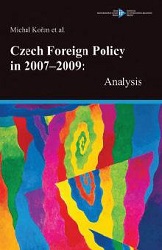West European Countries in the Czech Foreign Policy
West European Countries in the Czech Foreign Policy
Author(s): Mats Braun, Elsa Tulmets, Ondřej Ditrych
Subject(s): Political history, Economic policy, Government/Political systems, International relations/trade, Security and defense, Military policy, Political behavior, Politics and communication, Comparative politics, Transformation Period (1990 - 2010), EU-Approach / EU-Accession / EU-Development
Published by: Ústav mezinárodních vztahů
Keywords: West European Countries; Czech Republic; foreign policy; Military Relations; Economic and Cultural Relations;
Summary/Abstract: The Czech relations with countries covered in this chapter – both EU Member States and others (including microstates) – shared certain general characteristics. Without exception, they involved no issues that would be a subject of major controversy. Secondly, with but a few exceptions, these relations were conducted within a network, or at least through a network, of the EU multilateral frame. The reason for the dominance of the EU framework in the conduct of bilateral relations is primarily the importance of the political process at the EU level both for Member States and their West European neighbours due to a high degree of mutual interdependence and the increasing scope of EU’s allocative and distributive policies. Several government officials throughout the period covered in this volume estimated that up to 80% of the relations of Czech Republic with those countries take place at the EU level. However, this does not result in a decline of the bilateral dimension of mutual relations, as could be expected, but rather in their conduct in a new environment of a burgeoning political system, where the need to negotiate issue coalitions increases. Bilateral negotiations remain an important diplomatic means of this ‘permanent congress’. The last shared feature of Czech foreign policy towards the countries covered in this chapter is that it generally took place in conditions of a political pluralism, which was made possible by the countries’ location within the EU framework. The process of Czech foreign policy involved a considerable number of government actors – all of which should theoretically act in the public interest – without the mediation by traditional diplomacy and conduct through its standard channels. This new pluralism represents one of the central challenges for Czech foreign policy, since without proper coordination it leads to a suboptimal use of (necessarily limited) resources in realizing public interest abroad.
Book: Czech Foreign Policy in 2007–2009: Analysis
- Page Range: 177-195
- Page Count: 19
- Publication Year: 2010
- Language: English
- Content File-PDF

